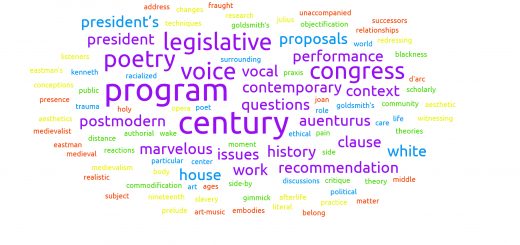Call for USP Reason Symposium Keynote Speakers! (BUMP)
Hi everyone,
I’ve created a new blog post to bump the call for symposium keynote speakers up to the top of the blog. Here’s the original call for speaker suggestions:
It’s time to start thinking about the spring symposium! Every year we have a keynote speaker who can discuss something that’s related to our theme. They don’t have to be able to speak to all possible interpretations of the theme, just say something interesting about some aspect of it. Our theme this year is Reason(s), so please reply to this post if you have ideas for a keynote speaker. Please give us their name, contact info (if they aren’t from Duke), and a brief note about why you think they’d be a good speaker!
Thanks!
Your Grad Mentors
I’ve also hyperlinked all the names that Alex suggested for further reading. From Alex’s original post:
Having pondered the issue before and after a delicious turkey, here are some names that I propose for your consideration:
– Dan Ariely (behavioral economist)
– Alex Rosenberg (atheist philosopher)
– Ruth Grant (political theorist/ethicist)
– Paul Griffith (in the Divinity School and lover of both Augustine and Wittgenstein)
– David Gatten (experimental film maker)
– Regis Kopper (director of the dIVE)
– Jack Knight (law school and political theory)
– Sheila Dillon (ancient art and archeology)
– Angela Zoss (visualization technology group coordination)
– anyone from “How It’s Made” show
– any of the Supreme Court justices
– God (special thanks to Wikipedia for this overview)
Feel free to add to this list at any of the levels of plausibility,
Alex
cheers,
Tori




Hey Unis, I wanted to suggest 2 speakers that I know about. Maybe one of you can speak more to the their areas of interest…I do not know if either are available or invested though. And, they run the gambit from science to religion…
Sarah H. Lisanby, M.D., Duke Institute for Brain Science.
sarah.lisanby@duke.edu
I saw her speak at the Regulator to a packed crowd and found her work and presentation to be very engaging – and it still amazes me how much technology has advanced so many different fields now that the data is so much more abundance like with Brain Imaging.
Rabbi John Friedman, a leader at Judea Reform Congregation and in the Durham faith community…who is retiring! It would be nice for the USP to get this notable speaker before he retires next year. (Maybe there’s a Uni out there who know him or a contact?)
“When I came here, the congregation had just elected a woman to be president of the congregation. Now gender is not noticed in that role,” Friedman said. Theological issues have changed, too, he said, like questions of Jewish families and who is a Jew. Nationwide Reform Judaism has gotten smaller, like mainline Christian denominations, though not in Durham. But the biggest two changes over the years have been in the role of women and technology, he said.
Happy hunting!
-Melissa
USP Coordinator
Here are a few suggestions of topics and some potentially related speakers:
– Why do we dance? How/why has the role of dance changed in North American society?
Ava LaVonne Vinesett (ava@duke.edu)
– Nature vs nurture
Avshalom Caspi (avshalom.caspi@duke.edu)
– Why we do what we do
Dan Gilbert (gilbert@wjh.harvard.edu) or maybe one of his grad students
Tony Robbins (http://www.tonyrobbins.com/)
This is a pretty terrible cop-out, but I don’t have time to look up a bunch of people right now so I’m going to try and squeak by with this: I think it would be cool to have a physicist as the keynote speaker. Not only would we get to hear about cool physics magic, he or she would be able to speak to the reason for doing research that is so many years away from having any practical applications. Is it research purely for knowledge’s sake or is the ultimate goal some sort of specific application rather than a broad sense of forwarding science?
Well, for physicists, here are a couple of ideas:
— Dan Gauthier: studies chaos in networks and also quantum communication/quantum computing. Dan’s chaos work could certainly be tied to reason in that how does one reasonably describe/predict/understand a chaotic event (http://www.wired.com/wiredscience/2013/10/chaos-theory-dragon-kings/). Dan’t quantum information work is right on the border of physics and engineering, so it very much addresses the research for understanding vs. research for application question. http://www.phy.duke.edu/quantum-electronics-lab
— Ronen Plesser: string theorist, can certainly talk about research for its own sake as well as the boundaries between physics, mathematics, and (maybe) philosphy http://www.phy.duke.edu/content/m-ronen-plesser
— Charles Bailyn: astrophysicist with an interest in the concept of creation. Has co-taught a course on Religion and the Big Bang with a theologian, http://www.astro.yale.edu/bailyn/
Also, I think anyone from this lecture series would be fun: http://www.yale.edu/opa/arc-ybc/v36.n23/story14.html